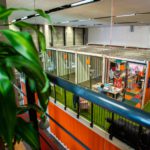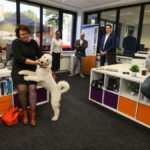The story of Flexizone
“WE CAN’T BUILD IT QUICK ENOUGH”: THE STORY OF FLEXIZONE, THE NETHERLANDS’ HOTTEST NEW FLEXIBLE SPACE BRAND
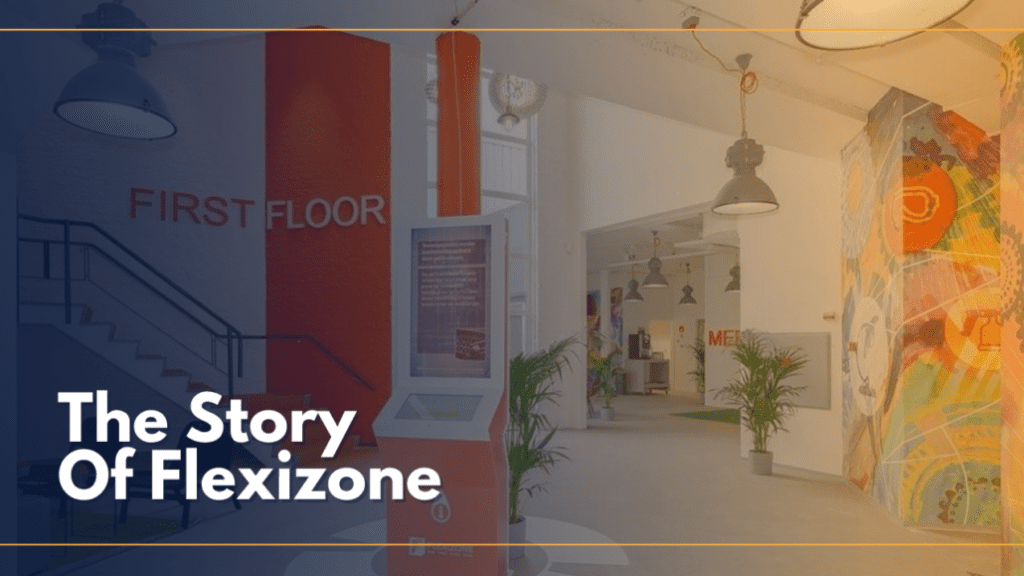
- Flexizone is an innovative concept in the Netherlands, providing a combination of office, light industrial, and storage space under one roof.
- The company was founded by Kevin and Frank Oppenheim, who also co-founded Sirius Real Estate in Germany.
- After “phenomenal” demand and rapid success, even during the pandemic, Flexizone is continuing to expand its footprint across the Netherlands.
For some time, the Netherlands has been flying the flag for Europe’s flexible workspace industry. In April 2019, a Spotlight report by Savills found a +242% surge in take-up by flexible space operators in the Netherlands over the previous five years.
Coworking has grown rapidly in recent years too, with Amsterdam in particular attracting a rising number of startups and SMEs to its coworking spaces and serviced offices.
But office space isn’t the only product in demand.
Many companies seeking workplace flexibility want more than a desk and WiFi. They need makerspace for hands-on manufacture. They need warehouse space for light industrial work. They need secure storage and parking. Somewhere in the mix they also need an office to take calls, work out logistics and keep all the cogs moving smoothly.
And they want all these flexible spaces under the same roof.
A number of similar spaces exist within the flexible realm. There’s BizSpace and Evans Easyspace in the UK, Smartspace by Sirius in Germany (more on Smartspace later), and CubeWork in the US, to name a few.
And now the Netherlands has Flexizone, the hottest new brand in flexibility and convenience.
“Nobody else is providing this combination of office, light industrial, and storage space under one roof in the Netherlands,” says Kevin Oppenheim, founder and Managing Director of Flexizone.
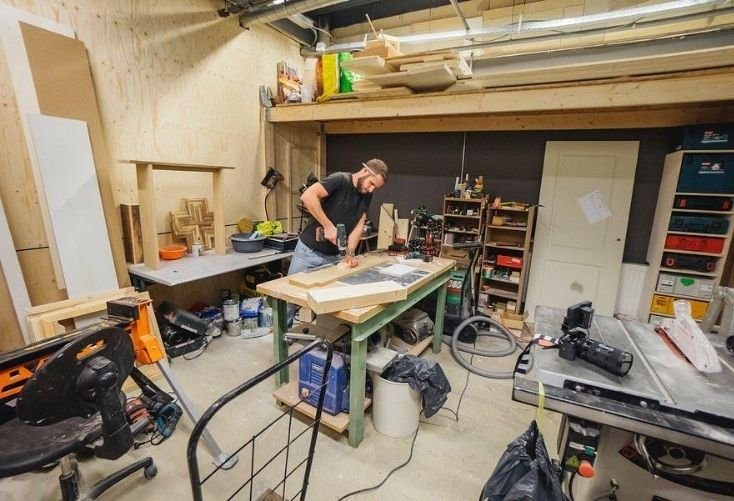
On the surface, a mixed use building with different types of business space doesn’t seem to break the mould.
But Flexizone has been many years in the making, and its current success comes from having carved out a successful niche in specific locations.
“Seldom do we see a new, truly innovative concept erupt within our industry; and even more rare is one that is so well executed and capitalized,” commented Frank Cottle, CEO of Alliance Business Centers Network. “The combination of vision, market knowledge and absolute focus have come together in this unique new business model.”
The Flexizone Story
So how and where did it all begin?
Oppenheim is a familiar name within Europe’s commercial property and flexible workspace sector.
Kevin Oppenheim, alongside his father Frank, co-founded Germany’s Sirius Real Estate in 2006, which went on to become a hugely successful dual-listed commercial property and flexible workspace brand.
Flexizone was born out of Smartspace, the flex segment of Sirius. But its story started well before then.
“Back in the late 1990s we saw a great opportunity to buy vacant office and industrial buildings, chop them up and create branded business centres focused on a strong regional SME sector in the UK,” Kevin Oppenheim explained in an interview with Allwork.Space.
“It started in 1999 when we purchased Bedford Heights, the former European headquarters of Texas Instruments. We chopped it up, branded it, and installed new facilities including a health club, conference centre, cafe, and even a hotel.
“By the time we sold it in 2004, we had transformed the asset into a thriving multi let business park servicing more than 50 SMEs from Bedfordshire.”
From the UK to Germany
The Oppenheims acquired and developed a number of similar business centre properties in the UK between 1999-2005. But by this point, the UK market was heating up and the opportunity to purchase headquarter buildings for redevelopment was shrinking.
“So we sold that business and went to Germany.”
In 2006 Oppenheim co-founded Sirius Real Estate in Berlin, which operated on a similar model and went on to become one of the biggest names in commercial property and the European flexible office market.
However, Sirius first had to endure the global financial crisis, which created both devastation and innovation within the company.
“It was a total nightmare,” recalled Kevin. “A lot of companies went under and we saw a big fallout in tenants. It was a very difficult period for us, as it was for everyone.”
During that time a lot of space became vacant, and this triggered a change in direction for the company and a new brand. “We saw an opportunity to take floor plates and create small flexible workspace units. It was similar to what we had done in the UK, but the assets in Germany were so big that we hadn’t gone down that route before.”
This was in 2009, the height of the crisis, when demand from traditional tenants had evaporated. “So we took a mix of office and industrial buildings and we created three flexible products: offices, light industrial units, and small storage units, all within the same building.
“This was the creative genius of my father, Frank. We called it Smartspace.”
Smartspace became the flexible workspace brand within Sirius Real Estate, which drew huge demand from regional SMEs and continued to grow under Oppenheim, until he later sold the asset management platform in 2012 and passed on operational control of Sirius to the new management team he had installed under the leadership of CEO, Andrew Coombs, and CFO, Alistair Marks.
New Opportunities in The Netherlands
Fast forward to 2014 and Oppenheim had identified new opportunities within the Netherlands.
“We started to explore what the flex market was like there. We found that it was very immature and with no shortage of SMEs, we thought that our Smartspace model would be a winner.”
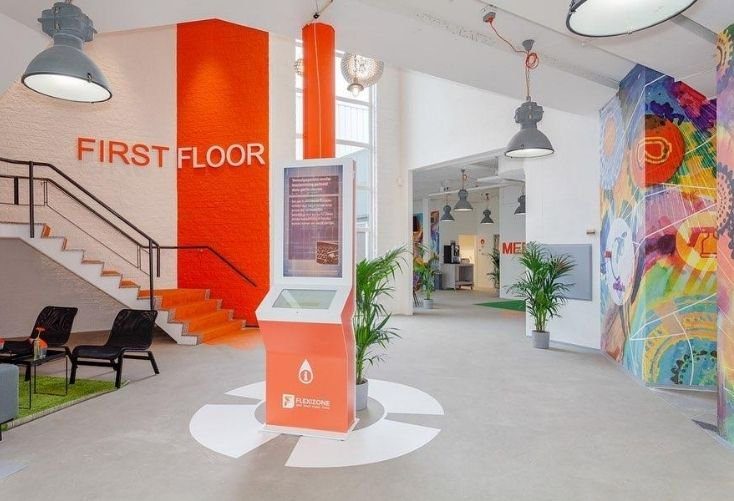
Oppenheim tested the model by introducing 10,000 sq ft of mixed flexible space into a building in Rotterdam under his new brand, Flexizone, which was modelled on Smartspace.
“It flew out the door in 5 minutes!”
After rapid success, Oppenheim tested Flexizone in more locations – and all of them achieved similar results.
“We couldn’t build it quick enough. We never had this sort of takeup in Germany.”
According to PwC, the Dutch labour market is the most flexible in Europe. The number of self-employed people in the EU has significantly increased over the last decade, “but nowhere as significant as in the Netherlands”. For a brand that appeals to startups and SMEs, Flexizone appeared to hit upon the right market at the right time.
“We bought another couple of large traditional business parks and decided to push the Flexizone footprint further, and we had very, very rapid takeup. Demand was just phenomenal.”
The brand continued to grow and in 2017, Oppenheim switched gears and took a more concentrated approach towards the flexible market. Until that point, Flexizone had accounted for around 30% of space in each business park, “but it wasn’t the main event”.
“We wanted to focus more on flexible space, which is our core.”
By this point, in 2017, The Netherlands had developed a strong coworking market and knowledge of flexible space was spreading fast.
“The Netherlands was becoming a real coworking hub and the sector was growing. But we remained, and still remain, the only operator out of 50+ flex operators to provide this combination of flexible products all under the same roof.
“Nobody does what we do – that’s the big winner for us.”
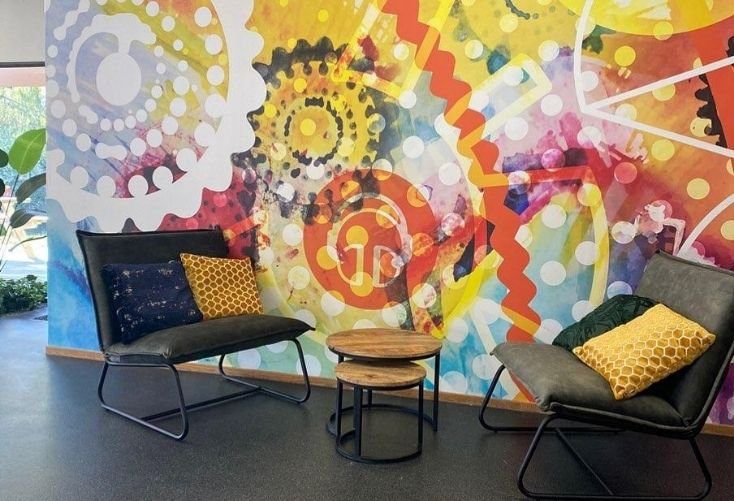
“Nobody does what we do – that’s the big winner for us.”
Oppenheim created a team based in Rotterdam under the stewardship of Sylvia De Haas, a former Regus area sales manager and well known real estate asset manager in the Netherlands. “Sylvia is fundamental to the growth and success of the Flexizone brand. With Frank creating product, and Sylvia selling it, I know we have a winning formula.”
Oppenheim went on to acquire 8 buildings across the Netherlands in Utrecht, Amsterdam, Rotterdam, Eindhoven and just recently The Hague – “all the good hubs” – and Flexizone accounted for around 80% of the space in each property, with the remaining portion given over to one or two traditional tenants.
2020: “Tough conditions”
The demand kept coming and from 2017 to 2019, Flexizone continued to attract SMEs with high levels of takeup.
And then along came 2020 and an unprecedented global health crisis.
“Initially it looked like a deeply concerning situation for all of us,” Oppenheim said of the onslaught of coronavirus. “In March 2020, we went into survival mode. We worked out how long we could survive and we stopped spending.”
In April, much like the rest of Europe, activity came to a standstill and site attendance across their portfolio dropped to 20%.
“April was a nightmare.
“Then in May we had a record leasing month! Sylvia and the team proved their expertise and Flexizone proved its defensive qualities under tough conditions.”
Quite unexpectedly, by the end of April, enquiry levels had picked up and people began viewing spaces again.
“By May things started to really motor. June was very strong and in July we had another record month. August is looking very solid too. Initially we were worried that we wouldn’t sell one square inch, but it’s almost as if we had a little blip mid April and that was it, back to normal.”
Why? “The strength of the team, top quality product range, and of course the Flexizone locations.”
The locations are all 10-15 minutes outside the central business district, which fits the needs of organisations looking to decentralise their teams. Each building has a maximum of two floors, so there are no lifts and very few common areas, which promotes a safer environment in terms of physical distancing. The spaces are private, and by having a combination of space types within the same building, people aren’t required to travel from one location to another.
“Enormous opportunity”
Interestingly, in addition to their core SME customer, Oppenheim is now seeing more corporates and government departments enquiring – and taking – flexible space.
A big driver for this is the need for reduced density. Physical distancing has rendered many large corporate offices unsuitable and large firms are now looking to accommodate their people elsewhere. Due to the huge ‘unknown’ that hangs over the current situation, flexible space is the natural solution.
“We’re going to see more of that.”
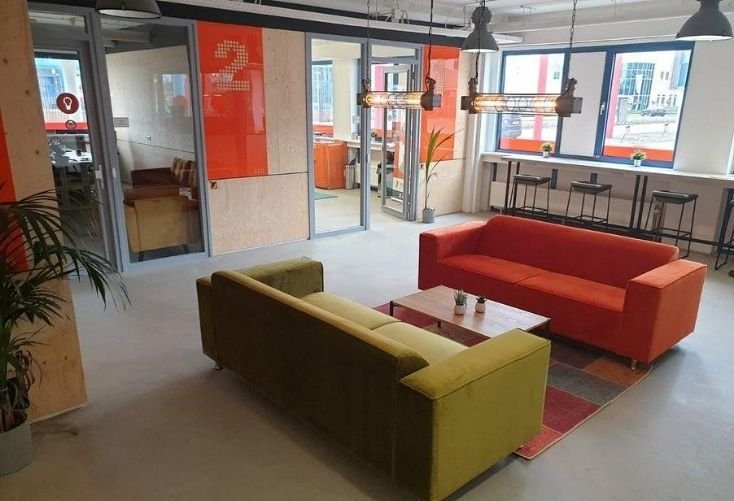
So what’s next for Flexizone?
For Oppenheim, there is always room for improvement.
“Managing flex space is completely different to managing a traditional portfolio. You need an infrastructure, a team, marketing, lead generation – it takes a long time. There are a million things to do. It has taken us 6 years to build the right team, and we’ve still got enormous opportunity to improve and grow further.
“Myself, Frank and Sylvia are deeply ambitious, so watch this space.”
Like the rest of the industry, the resiliency of Flexizone will be tested over the coming months. But its track record to date has ensured the brand is occupying a strong position for whatever the future holds.
“20 years later, we finally got the product range right,” added Oppenheim. “We’ve come a long way since Bedford Heights!”


